|
| |
DHC-1 Chipmunk
In 1946, DeHavilland Canada started work on a new training aircraft for
both RCAF and civilian use. Airframe #1, CF-DIO-X was shipped to the
parent company in England for evaluation and possible use by the Royal Air
Force. The RCAF took delivery of 107 aircraft while India, Egypt and
Thailand all placing orders. The Royal Canadian Flying Clubs Association
received a number of aircraft from the RCAF for refresher training and many of
these were sold on the civilian market.
The RAF ordered 1000 aircraft built in England while Portugal built 60 under
licence.
The Aeroclub kit, in 1:48 scale, was based on the British version of
DHC's trainer complete with the original "Bird-cage" canopy and faired gear
legs.
Having flown many Chipmunks over the years, I have found it a very delightful
aircraft..except for the Gypsy engine which I found as both a pilot and wrench
twister, to be a real pain.
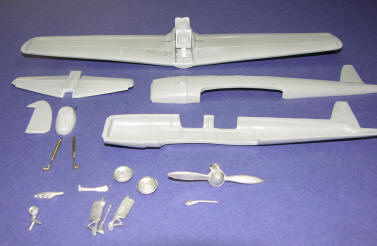 |
|
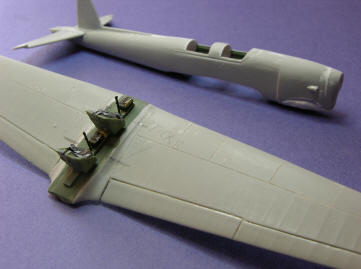
|
|
The kit is very basic, with overly thick fuselage casting, and little
detailing. There was some detailing added before the fuselage was
closed up |
|
A control tunnel was scratch built under the seas and seat
belts and radio box added |
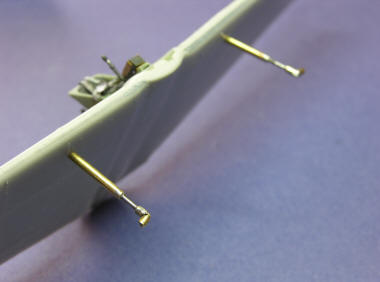 |
|
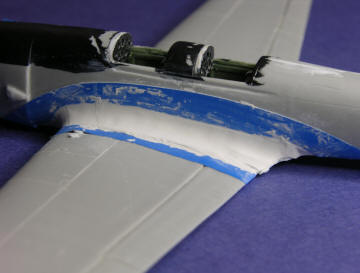 |
|
Landing gear legs were fabricated from brass tubing and wire to replicate
the RCAF type of gear. Brass torque links added later as they are very
delicate |
|
The wing fillet was corrected using vinyl tape to outline the shape then
filled with Milliput |
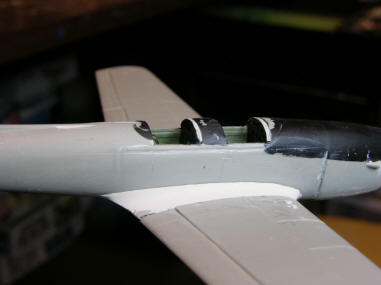 |
|
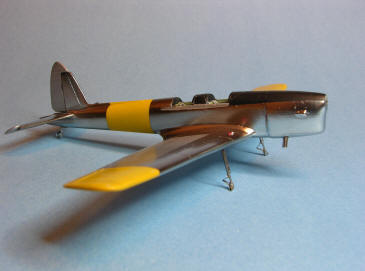
|
|
Once the Milliput cured it was sanded to the final shape |
|
The model was sprayed first with Tamiya TS-14 Gloss Black followed by light
coats of Alclad II Polished Aluminum on the metal areas and Aluminum on the
fabric portions of the wing and control surfaces.
|
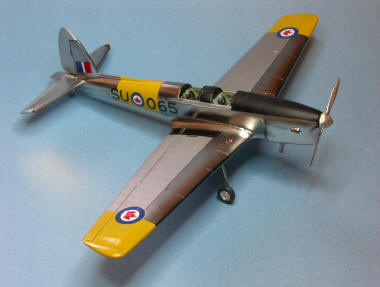 |
|
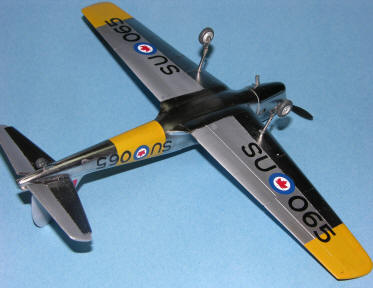 |
|
The yellow is Model Master Gloss Trainer Yellow. The decals are from
the big spares box
|
|
The underside shows the type of marking found on RCAF trainers in the early
1950s |
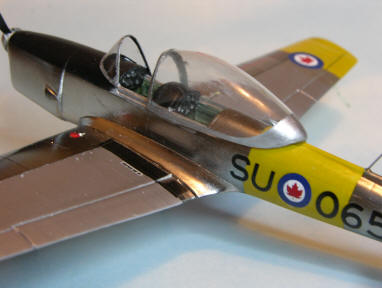 |
|
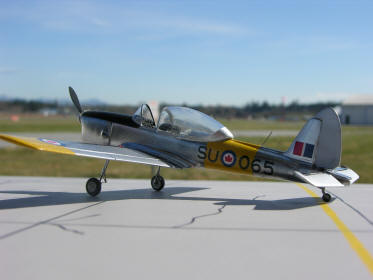 |
|
The canopy was formed by vacu-forming over a balsa mould and although not as
clear as I would have liked, it is reasonably accurate. |
|
18065 is
shown in the original marking used by the RCAF up until May 1955. This
airframe was restored in Comox, BC some years ago then underwent
"corrective" repaint and markings in Langley, BC in 2009. It now flies
in the USA.
|
|